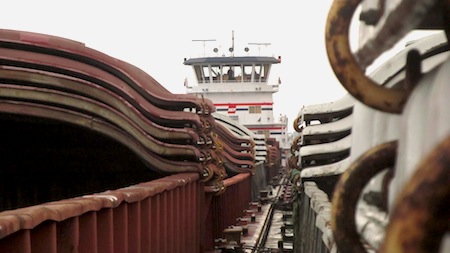
A new geography of economic growth is unfolding in places that few people anticipated even a decade ago. In my work on energy development, I’ve seen how the northern Great Plains quickly became a center of oil and gas development. The entire Great Plains has generated low unemployment numbers as a result of energy production and rising farm commodity prices.
I’ve also followed the trend into the Ohio River Valley, which is among the national leaders in job growth now. The rust is being scrubbed from the belt. I was in Paducah, Ky. earlier this month for the New York Times and will be writing here about what I found out about the region’s fast-modernizing economy from the pilot house of an Ohio River towboat.
Today, the paper published my article on Louisville, an entrepreneurial city, the largest along the 981-mile Ohio River, which has always been adept at understanding how geography, resources, and new markets can be turned into business opportunities.
Good grass strengthened thoroughbreds that have competed at the springtime Kentucky Derby since 1875. Ample labor at competitive cost made Louisville a manufacturing center, led by Ford, which has kept big assembly plants open here since 1916. And the city’s location along the Ohio River, and near the continental center, turned Louisville into a transport hub, currently reflected in United Parcel Service’s state-of-the art package sorting and distribution center at Louisville International Airport.
Now an eight-story, 200,000 square-foot commercial office and laboratory building nearing completion in Louisville’s central business district signals the steady expansion of the city’s biggest new economic sector, devoted to what local development specialists call “lifelong wellness and aging care.â€
See the article here.
— Keith Schneider

One thought on “In New York Times, Louisville’s New Growth Sector”